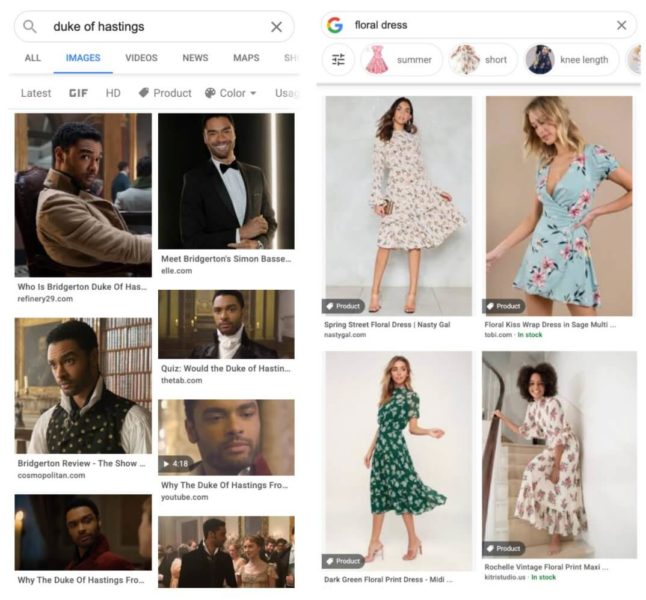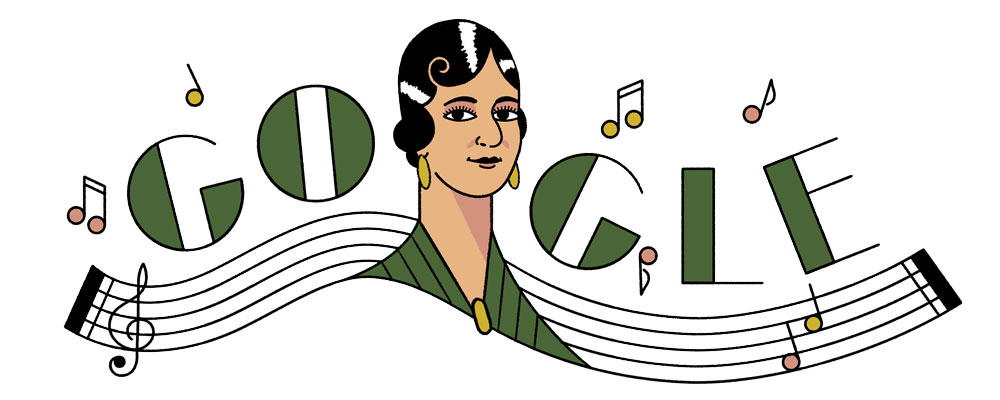

Google goes dark theme and passage ranking sees the light: Friday's daily brief
source link: https://searchengineland.com/google-goes-dark-theme-and-passage-ranking-sees-the-light-fridays-daily-brief-346053
Go to the source link to view the article. You can view the picture content, updated content and better typesetting reading experience. If the link is broken, please click the button below to view the snapshot at that time.

Plus, making the case for more Google Search Console data.
Search Engine Land’s daily brief features daily insights, news, tips, and essential bits of wisdom for today’s search marketer. If you would like to read this before the rest of the internet does, sign up here to get it delivered to your inbox daily.
Good morning, Marketers, SEOs and PPCs or whatever titles you may have today.
I mean, we all know we are tasked with a lot and sometimes it involves not just us fixing title tags or doing keyword research but other times it involves coding, graphic design and even a little tax law. We do it all. Okay, enough about professional titles…
Today’s theme of the newsletter is, “Is that new?” As some of you may know, people ask me countless times a day, “Is this new?” The thing is, Google is always testing new interfaces, new designs, new features and releasing tweaks and changes to its ranking algorithm that are unconfirmed. Well, what is new is that Google launched passage ranking the other day in the U.S. search results in English, but what is not new is that Google made an update to the image search results algorithm to reduce duplicate results and improve search refinements.
Recently, Google has been testing a new dark theme appearance in the search results. In fact, Google started testing it in December but over the past few days more and more have been seeing this theme. The issue from a search marketing perspective with this new dark mode is that the ads are a bit harder to distinguish from the organic listings. I mean, this shouldn’t surprise anyone, making the ads harder to distinguish has been a Google trend.
Oh and feel free to message me on Twitter @rustybrick if you think you spotted something new, I can try to let you know if it is … or not. :)
Barry Schwartz
“Is This New” unofficial Google Liaison
Google launched passage ranking in the U.S. English results

After announcing passage ranking, formerly known as passage indexing, last October, Google has officially confirmed that it began to roll out passage indexing in the US English search results. It plans on rolling it out globally at some point, which is expected to have a 7% impact in the search queries.
This roll out began on Wednesday, February 10, 2021, in the afternoon Pacific Time for queries in the US in English. So, go check your rankings and Google organic traffic for any changes.
Google Search dark theme mode expands but search ads are hard to distinguish

You see, in light mode, the Ad label is black on a white background but in dark mode Google is using a gray font for the Ad label on a black background. Why not use white font, why not use that blue font it is using for the title of the snippet? Maybe because it is harder to see?
Google has been testing the dark theme for a couple of months now and it is starting to be seen by more searchers. I wouldn’t be surprised if it begins to officially roll out to all searchers soon. And with the Ad label as it is now, don’t be surprised if you get some accidental clicks on your ads.
Google Images should be more relevant and less duplicative

Last November, Google released a new update to Google Image Search, the company just announced this week, several months later. The update makes improvements in two areas:
- The results should reduce duplicate images, so that we can display others that are relevant yet visually distinct.
- The search refinements for alternate meanings of words should have improved in terms of the categories and images Google selected.
So, if your Google Image Search traffic saw a change in November 2020, this may be why.
We want more data from Google Search Console and here is why

Glenn Gabe wrote an outstanding article on why it is vital for Google to give us more data within Search Console. “There is limited export capability from the Coverage reporting, which is especially tough for medium to larger-scale sites,” he explained, “Currently, there is a one thousand row limit per report.”
For example, a site with just two hundred pages could easily export all indexed pages, and typically all excluded pages by category. But sites with hundreds of thousands, or millions, of pages, are often severely limited by just one thousand rows per report. And, that can hamper a site owner’s ability to fully identify patterns of problems across the entire site, export more URLs by category, and then of course, address all of those problems in a timely manner.
Google Search Console should provide more data per report. Glenn provided specific cases where more data would have helped site owners, and he provided a way for you to get involved by including a poll in the story that you can complete.
Besides our poll, yesterday Google read the story and created their own poll and posted about it on Twitter. Words matter and so does exporting your data.
Google SEO for image search

Google Doodle for María Grever. The Doodle on the Google homepage yesterday was to celebrate the Mexican singer and songwriter María Grever, considered to be one of the country’s greatest composers. You can learn more over here.
SEO for images. Google’s John Mueller posted 12 tips and more on how to optimize your images for search engines. The video is just under 10 minutes long and is pretty detailed.
Google homophone-detection. John Mueller on Twitter: “I don’t think we’d have a “homophone-detection” part in our algorithms, but we do pick up “pseudo-synonyms” / typos like these. My assumption is that natural language processing models deal with the common cases like these without additional help.”
We’ve curated our picks from across the web so you can retire your feed reader.
About The Author
Recommend
-
 70
70
There are two hard things in computer science: cache invalidation, naming things, and deciding which editor theme to choose. I've been lately trying out a light theme and wanted to take the chance also for lookin...
-
 31
31
Explore PostsRight wing news complains all the time about the governors of michigan, new york, and california, but the real overarching authoritarian hell hole is conservative governors like desantis for using the police to intimidate/silenc...
-
 15
15
Calculadora React Native Calculator with light and dark theme made with React Native. Calculator built in React Native Expo. The application has a light and dark theme, and is part of a personal study in React Native.
-
 10
10
Introduction This post shows one method to use React’s useContext and useState hooks to implement dark/light mode toggling. The relevant files are src/ThemeProvider.tsx, src/index.tsx
-
 21
21
SEO Google confirms passage indexing is not yet live We expected this to roll out in 2020 but that seems unlik...
-
 11
11
Despite the pandemic, Google was busy working on changes to its search ranking algorithm — here is a summary review of those changes through 2020. Barry Sch...
-
 12
12
Identity Verification Rolls out in Google Ads & This Week’s Digital Marketing News [Podcast]The Marketing O’Clock team talks about identity verification for Google Ads, what data publishers see with Google News reporting on Googl...
-
 8
8
Which Is Better for SEO & Why?Subdomains vs. Subfolders: Which Is Better for SEO & Why?The use of a subdomain or a subfolder has SEO, user experience, and other implications. Learn about the pros, cons, and use case...
-
 15
15
SEO Google passage ranking now live in US English search results Google said this can have a 7% impact on sear...
-
 17
17
About Joyk
Aggregate valuable and interesting links.
Joyk means Joy of geeK